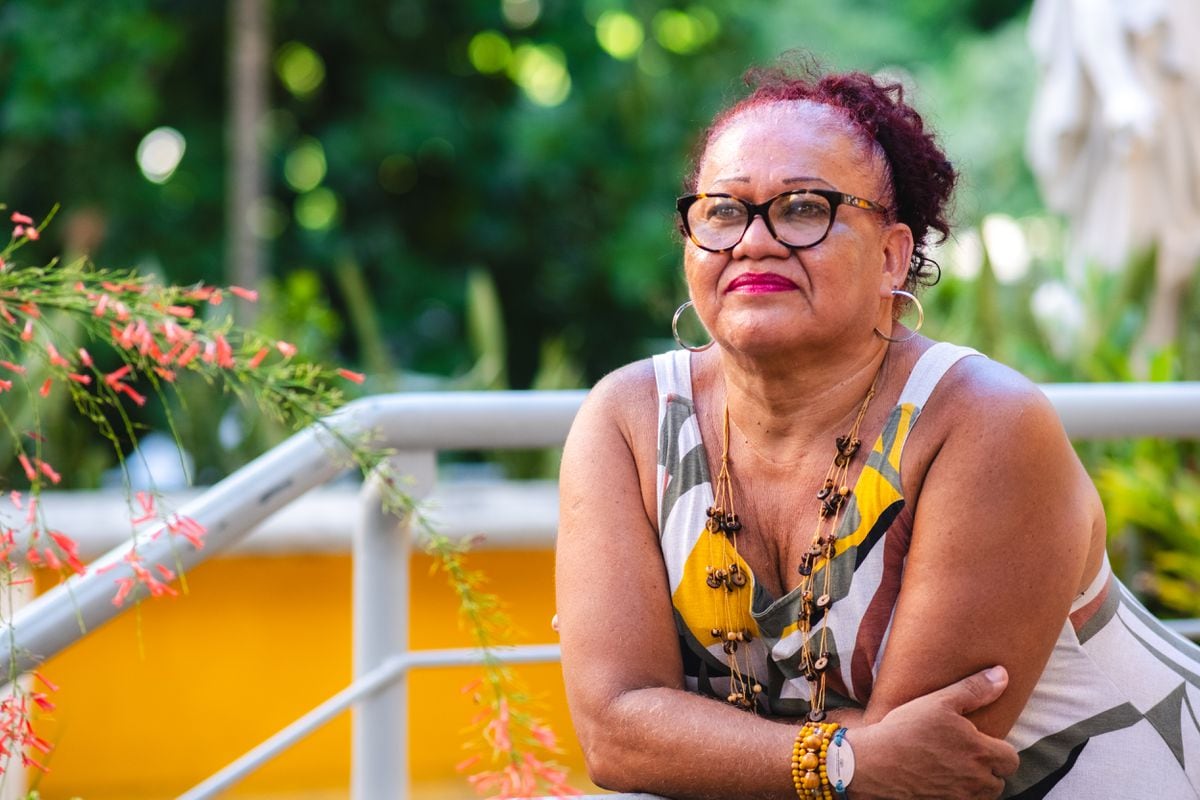Erika Hilton, at the São Paulo City Hall, in November 2020. NELSON ALMEIDA (AFP)
On Sunday, Duda Salabert left her home in Belo Horizonte, the capital of the Brazilian state of Minas Gerais, and went to vote wearing a bulletproof vest.
A few hours later, a barrage of votes made her a federal deputy.
From São Paulo, Erika Hilton experienced something similar.
The two have in common that they will be the first transsexual women elected as federal deputies in the history of Brazil.
They will be the front line of the trans collective in a hostile environment: the National Congress that came out of the polls will be more Bolsonarist than ever.
They may be pioneers, but neither is a newcomer to politics.
The two were the councilors with the most votes in their respective cities two years ago, and they have years of militancy behind them.
Salabert combined her work as a councilor with that of a Portuguese teacher in one of the best schools in her city.
She lost her job last year, according to her version due to pressure from her parents and the continuous threats she received and continues to receive.
Her trajectory in politics, however, has been marked by a look that goes beyond the urgent fight against transphobia, which is normally the banner of these candidates.
Salabert, who on his social networks talks about politics as well as about vegan food recipes, has caring for the environment among his main concerns.
When she was elected councilor she promised to plant 37,000 trees, one for each vote received, and in these elections she has boasted of running the first "zero waste" campaign in history, without using pamphlets, flags, or stickers.
Among her proposals are reducing the use of pesticides or diversifying the economy of small cities that are highly dependent on mining activity, something very common in her state.
Despite this broad look at her agenda, the death threats they receive have to do above all with their status as a trans woman.
The history of Hilton, who is black, is also marked by discrimination.
She grew up in a conservative family that expelled her from home for not accepting her transsexuality, and when she was barely 14 years old she began to prostitute herself on the street.
She managed to defy the statistics and thanks to the student movement at the university and her fight for private companies to respect the social name of trans people, she caught the attention of PSOL, a party to the left of Lula's PT that invited her to join its rows.
Although her electoral base is the LGBTQIA+ niche, in order to try to break out of the bubble in this campaign she took pains to underline that the left cannot see the religious voter as a threat and has to understand the role of many churches in the most disadvantaged communities.
She participated in events with a progressive evangelical pastor,
Both Salabert and Hilton are survivors in the country that kills the most LGTBIQIA+ people in the world.
The trans collective takes the worst part;
last year 140 people lost their lives violently, according to the National Association of Transvestites and Transsexuals (ANTRA).
Entering politics in such a difficult context, and with Bolsonarism as a backdrop, is almost an odyssey, as explained by the recently released documentary
Corpolítica
, by Pedro Henrique França, which has one of its protagonists in Hilton.
The conquest of these two new deputies has not gone hand in hand with an advance in the representation of women in Congress, which has barely advanced three points and keeps Brazil in the worst positions in the world ranking of female presence in the legislative power.
Starting in 2023, Hilton and Salabert will work in an environment that will remain predominantly male, white, cisgender and heterosexual.
His arrival in Brasilia was one of the few joys of the left on election night, as was the election of two activist indigenous deputies (Sônia Guajajara and Célia Xakriabá).
They are minor exceptions to the rule.
The majority of the Brazilian parliament will be in the hands of the right-wing parties, with a notable rise of the most ultra-conservative deputies, many of them evangelical defenders of the so-called "traditional family."
Three days before being elected deputy, Salabert left a message on her networks in which the vertigo could be sensed before the imminent leap into national politics.
“I try not to normalize armored cars, bulletproof vests and the simple fact that I can no longer go to the bakery alone.
I wonder how long?
Could it be that there is little left to overcome this phase or is it just the beginning?
Subscribe here to the
EL PAÍS América
newsletter and receive all the key information on current affairs in the region.





/cloudfront-eu-central-1.images.arcpublishing.com/prisa/MG6G7DJUBNBLRNE2DSTK4WZYTY.jpg)






/cloudfront-eu-central-1.images.arcpublishing.com/prisa/KMEYMJKESBAZBE4MRBAM4TGHIQ.jpg)


